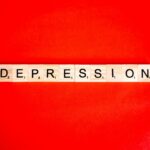Mental health is a term in India that has widespread stigma and discrimination attached to it. India, being a developing country, has the highest prevalence of mental illnesses, more than any other country in the world.
According to the National Mental Health Survey, more than 13% of Indians will experience “deteriorated” mental health at some point in their lives
It is no surprise, then, that there are many common mental health illnesses that Indians suffer from.
Here are some of the most common ones:
Depression-
The World Health Organization’s data shows that at least 57 million people in India are affected by depression.
Some early signs of depression include:
- Constant sadness for prolonged periods.
- Loss of interest in personal and social activities.
- Low self-worth
- Erratic sleep cycles
- Loss of appetite
- Loss of interest in daily activities
Each of these activities can harm a person in different ways. It can affect their school and office work, as well as many other areas of their lives.
If depression progresses and becomes severe – suicidal thoughts and actions may set in.
Hence, support from friends and family and therapy from health experts is a must.
Anxiety Disorders-
There are many forms of anxiety disorders. According to the National Mental Health Survey data, phobic anxiety disorders (anxiety as a result of intense fear) account for nearly 2% of the disease burden in India, and other anxiety disorders make up for an additional 1.2%. Obsessive-compulsive disorder (OCD) makes up 0.8% of the disease burden in India.
Those living with anxiety disorders may feel irritable, restless, and angry and have difficulty concentrating or sleeping.
It should be noted that, to some extent, anxiety is a normal emotion in situations that provoke fear or excitement. However, when the frequency or intensity of such anxiety spikes, it may be a sign of an anxiety disorder.
Anxiety disorders can be managed with therapies that help relieve stress. Previous studies have shown that behavioural and psychological therapy have positive clinical results.
Schizophrenia-
Schizophrenia is a psychotic condition characterized by delusions and hallucinations. People with schizophrenia are often out of touch with reality around them and, hence, are likely to see, hear and feel things that do not exist in reality. They are also likely to show emotional and behavioural imbalances, like laughing without a reason and mumbling.
According to the National Mental Health Survey, almost 0.8 % of the Indian population is affected by schizophrenia. Another study indicates that 7% of people with mental illnesses in India suffer from schizophrenia
Schizophrenia is best treated with medication. Psychosocial support can also be great. However, as this illness progresses, patients often tend to become reluctant to seek medical help.
Bipolar Disorder-
Bipolar is a disorder that is associated with episodes of mood swings ranging from depressive lows to manic highs.
Such a disorder is characterized by:
- Sudden changes in mood
- Irritation
- Loud speech
- Increased activity and decreased sleeping time
The latest statistics indicate that almost 0.3 % of India’s population suffers from Bipolar Disorder.
Medicines, psychological therapy and support from friends, family and society can help manage this condition.
Eating Disorder-
Anorexia nervosa, which is self-starvation and Bulimia nervosa, which is binge eating followed by purging or vomiting, and then a period of starvation and excessive physical activity, are a few examples of eating disorders.
Eating disorders are on the rise in India. The National Mental Health Survey, conducted in 2015, reported that about 2% of India’s population suffers from eating disorders. In 2018, another study revealed that 6.5% of teenage girls in India experienced eating disorders. Additional research also reveals that women are at a greater risk of developing an eating disorder as compared to men.
Anorexia nervosa, bulimia nervosa, and binge-eating disorder stand out as the most frequently diagnosed eating disorders in India.
Eating disorders have strong psychological connections and need to be controlled from an early stage.
Awareness, nutritional guidance and psychotherapy can help treat eating disorders. Doctors may also prescribe medicines in severe cases.
In conclusion, it is important that we take note of or recognise such signs for each of these disorders and help those in need. Most people often miss such signs and symptoms of mental disturbances. Hence, psychoeducation and systematic understanding or awareness of these illnesses are imperative.
Sources-
- A Look at The Three Most Common Mental Illnesses. (n.d.). Https://Www.Inspirahealthnetwork.Org/. Retrieved March 1, 2024, from https://www.inspirahealthnetwork.org/news/look-three-most-common-mental-illnesses
- World Mental Health Day: 5 most common mental illnesses in India. (2019, October 10). Firstpost. https://www.firstpost.com/health/world-mental-health-day-5-most-common-mental-illnesses-in-india-7478931.html
-
7 per cent of mentally ill Indians suffer from schizophrenia, says study. (n.d.). India Today. Retrieved February 29, 2024, from https://www.indiatoday.in/health/story/7-percent-mentally-ill-indians-suffer-from-schizophrenia-study-mental-health-1953718-2022-05-24Eating Disorder Awareness Week in India 2023. (n.d.). Skooc. Retrieved February 29, 2024, from https://www.skooc.com/blog/eating-disorder-awareness-week-in-india-2023

